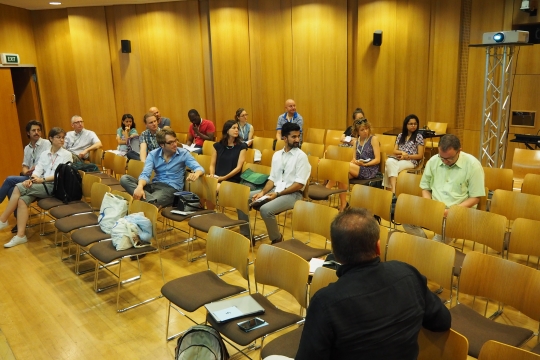This year’s EAERE conference served as platform to showcase EfD’s research efforts. Including special sessions dedicated to specific initiatives such as the collaborative program from Duke University, The Sustainable Energy Transition Initiative (SETI).
The papers in the SETI session explored questions on what drives and sustains energy transitions, particularly in the developing world and specially on household decision-making in energy-poor settings, including not just financial constraints, but also social norms, institutions, and preferences. A lack of understanding of the nature and scale of these drivers hampers policy design, deployment of suitable technologies, and channeling of limited resources for effective interventions. Presentations featured applied work from Ethiopia, Senegal, and Chile as well as various datasets and methods, this work aims to provide policy-relevant insights and inform future interventions and research.
SETI-affiliated scholars added to the showcase of research on energy and development in the conference's parallel sessions as well. Faraz Usmani (Duke University) presented preliminary insights from an experimental study (coauthored with Marc Jeuland and Subhrendu Pattanayak) designed to test how NGOs enhance effectiveness of energy, environment and development interventions in remote, rural settings; Luciane Lenz (RWI Essen) shared joint work with Michael Grimm, Jörg Peters and Maximiliane Sievert on demand for solar off-grid electricity in Rwanda; and Shaun McRae (Instituto Tecnológico Autónomo de México) highlighted how electricity-tariff structures can influence the behavior of electric utilities and impact electrification rates in Uganda in joint work with Jevgenijs Steinbuks and Moussa Blimpo. Needless to say, new and innovative research by scholars part of the broader SETI network contributes to the growing recognition of the role of energy in development.
